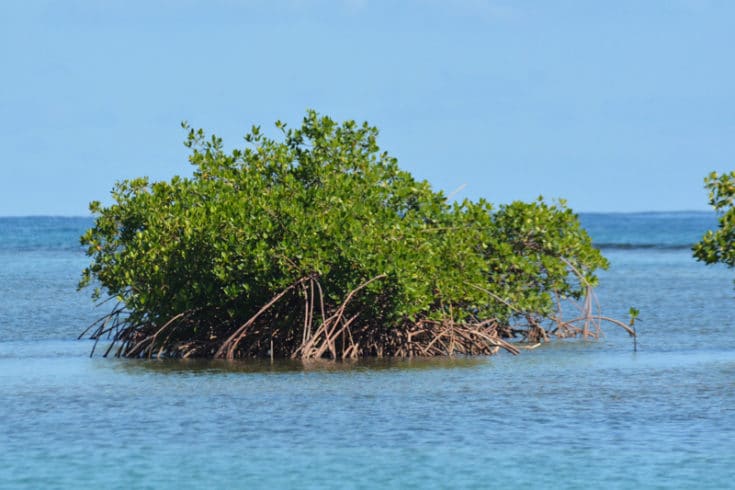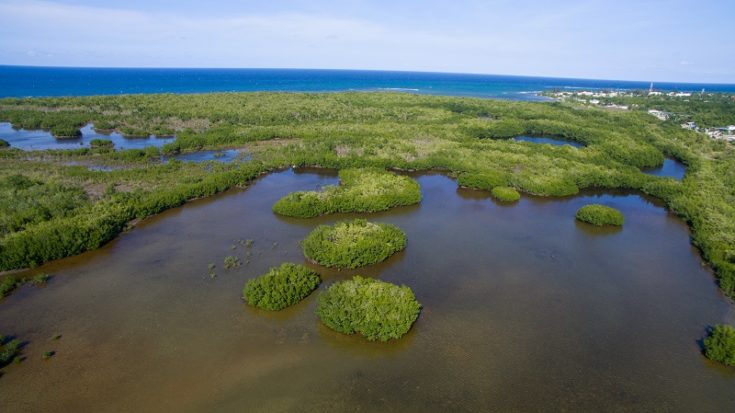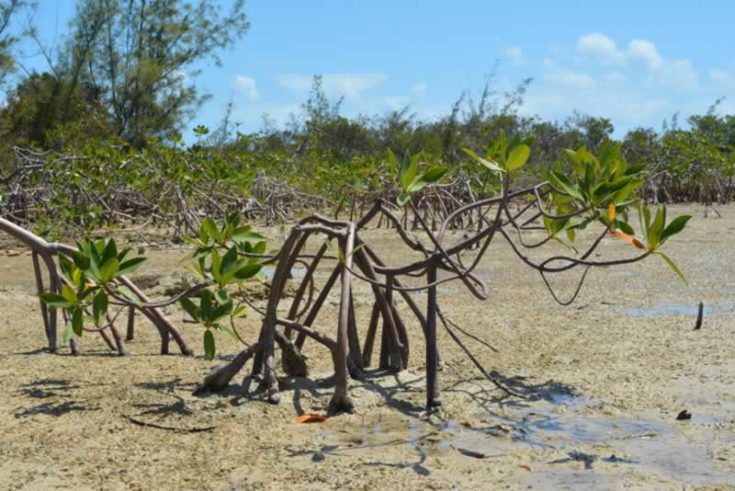In 2018, we partnered with Alligator Head Foundation to implement our Jamaica Awareness of Mangroves in Nature (J.A.M.I.N.) program in Port Antonio, Jamaica. Through this program, we have educated teachers and youth about the mangrove ecosystem. Although this initiative has been successful, both organizations recognize that it is also critical to inform adult stakeholders who are directly and indirectly utilizing these resources. Unless we expand our reach to a wider cross-section of stakeholders, the lack of awareness and appreciation of mangrove ecosystems will result in the continued degradation through the removal of mangroves, dumping, and other improper practices.
We received funding from the National Conservation Trust Fund of Jamaica (NDTFJ) to expand interest in mangroves among a variety of stakeholders. With their gracious support, we are collaboratively developing the Mangrove Development, Education, Awareness and Livelihoods (Mangrove DEALs) program. We will deliver mangrove education and awareness programming to several key stakeholders that we have identified, including educators, community members, and government officials.
Educators
We continue to see the value in educating our youth. Therefore, three groups of stakeholders will receive train-the-trainer workshops. They include secondary school teachers, student teachers, and outreach officers and staff of the Jamaican Fisheries Sanctuary Network (FSN). Many of these formal and informal educators have received little training and few resources to teach about mangroves. Our custom-tailored workshops will provide stakeholder groups with the opportunity to learn about the mangrove ecosystem in and out of the classroom. Most of the workshops contain a field component where educators can get a firsthand look at the mangroves and participate in restoration of wetlands by planting mangrove seedlings. Workshop participants will also be provided with materials to teach about mangroves and discover how to incorporate these innovative STEM materials into their classrooms or educational programs.
By providing train-the-trainer workshops we pass on the knowledge, skills, and materials needed to train other stakeholders about mangroves, therefore, expanding the reach of the program. Overall, our goal is to foster integration of knowledge about mangroves into school curricula and local the FSNs to change perceptions over the long-term and create environmental stewards.
Due to COVID-19, we are still working on a definitive workshop schedule; however, tentative information about the workshops is as follows: a) secondary school teacher workshops will be held in Portland, St. Mary, and St. Thomas parishes, b) one student teacher workshop will be held for students of the College of Agriculture, Science, and Education (CASE), and 3) workshops will be held throughout the FSN, to include all management entities.
Community
The general public provides a crucial role in protecting and preserving mangroves. The community’s lack of knowledge and awareness of the function and value of mangroves has led to some of the destruction of this ecosystem in Jamaica. Our goal is to build long-term trusting relationships with community members, while disseminating knowledge and current information about mangroves in an engaging and interactive way. To accomplish this, we will host a 2-hour workshop in the community adjacent to the mangrove that directly affects the East Portland Special Fishery Conservation Area (SFCA). Participants will learn about the ecological and economic importance of mangroves, sustainable environmental practices, and the current status of mangroves in the Portland area. They will also learn about the conservation efforts at the Turtle Crawle wetlands and East Portland SFCA.
Alligator Head Foundation will also host a community fair in Portland. Other local agencies will be invited to showcase their work at the fair, which will allow for various community stakeholders to interact with each other and other agencies. Our goal is to increase interactions and trust between community stakeholders and other agencies, especially Alligator Head Foundation.
Finally, we will invite community members to visit two coastal communities. Community members will go to the Oracabessa SFCA – a well-established Marine Protected Area to showcase the benefits of coastal and environmental protection. The second field trip will take community members to Portland Cottage community, an area that has no environmental protection and has suffered severely from the storm surges over the years due to the absence of mangrove forests. Through these site visits, we hope to show local community stakeholders’ real-life examples of the benefits to environmental conservation. We hope that this will open discussions on how to initiate sustainable environmental practices that will benefit their communities.
Government
Governments around the world make decisions that can positively or negatively impact the environment, and in turn, the communities that live there. Many government officials are not informed before they make important decisions about the environmental policies that they put in place. To aid in providing the most up-to-date science and information, we will hold a workshop with local government officials from the Portland Municipal Corporation. We will highlight the importance of wetlands and how the environment and community will be directly impacted by the loss of mangroves. We will also discuss the economic value and function of mangroves and provide recommendations for amending the zonation of the Turtle Crawle wetlands to prevent further degradation.
To aid in this discussion, we will invite a panel of local Jamaican scientists and experts who will provide the most current information. These local experts from the University of the West Indies, National Environment and Planning Agency, and Mona GeoInformatics can share and discuss the results of the Natural Resources Valuation, local climate projections, and how coastal vulnerability to natural hazards is increased by the removal of mangroves. Local government officials will have the opportunity to ask the panel questions, which will better aid them in making environmental policies.
Overall, the successful implementation of the Mangrove DEALs project will serve to increase awareness and appreciation of mangroves contributing to greater preservation of wetland ecosystems. The program will also aid in educating people about the interconnected nature of marine ecosystems and the value of marine protected areas and place-based conservation efforts.



